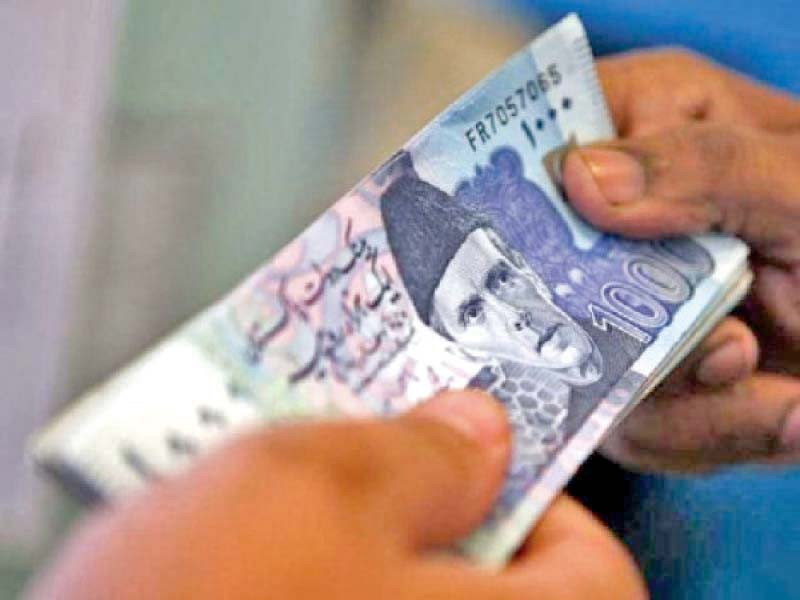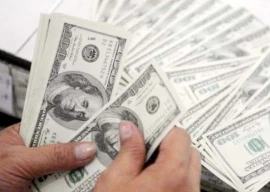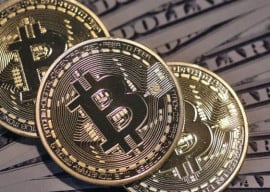
The State Bank of Pakistan (SBP) has supplied over Rs1 trillion to the conventional and Shariah-compliant commercial banks for an unusual longer period of 63 days for the second time in one week to push them to bring down the interest rate on financing for the government.
The overall injections came in at Rs2.07 trillion including the regular money supply for the seven-day open market operation (injection) on Wednesday.
The central bank has conducted back-to-back 63-day OMO (injection) after commercial banks further increased the interest rate by up to 75 basis points (bps) to 15.25% on new financing for the government on Wednesday (June 1).
The previous long-term (63-day) injection of Rs1.82 trillion was made on Friday (May 27).
“The OMO objective is yet to be achieved,” commented Arif Habib Limited (AHL) economist Sana Tawfik while talking to The Express Tribune.
The central bank has continued to supply liquidity for longer durations to give a signal to the money market that it wants to stabilise the key policy rate at around the current level of 13.75%, as another aggressive hike in the rate may badly impact economic activities, she said.
However, the commercial banks have continued to increase the interest rate for two major reasons.
One, the inflation reading is set to jump to a multiyear high at around 18% or higher in June following massive increase in petroleum product prices and electricity tariff to clear way for the resumption of IMF loan programme, she added.
The central bank’s key policy rate and the rate of commercial bank financing for the government remain higher than the inflation reading.
The inflation reading came in at a 28-month high at 13.76% for May 2022.
Second, the commercial banks know that the government has no other option to meet its financing requirement as it has been agreed with the IMF that the government will not take loans from the central bank for budgetary expenditure, she said.
To resume borrowing from the central bank, the government has to once again amend the relevant laws with the consent of the central bank.
Commercial banks provide financing to the government through investing in government papers including three to 12-month treasury bills and three to 30-year Pakistan Investment Bonds (PIBs).
The cut-off yields increased by 55-75 bps to 15.25% on three and six-month T-bills, while the rate rose to 15.50% for 12-month papers in the last auction conducted on Monday.
The government borrowed Rs792 billion against the target of Rs750 billion.
Tawfik said the central bank has failed to achieve the OMO objective as the government is in dire need of funds and has no other option than to borrow from commercial banks.
“The absence of foreign currency inflows has encouraged commercial banks to demand higher rates,” she said, adding that the foreign inflows would soon bring down the bank rates.
“I don’t think the commercial banks will cut interest rate in the forthcoming T-bills and PIB auctions (planned for mid-June) despite the second 63-day OMO,” Tawfik said.
The higher inflation reading would keep commercial banks charged to further raise the cut-off yields, she said.
The inflation reading would surpass the 18% mark if the government decides to further increase petroleum product prices in June, as the move may not be ruled out.
“The weekly inflation reading, measured through the Sensitive Price Indicator, has already spiked 20% this week compared to the same week last year. It rose 2% on a week-on-week basis.”
The impact of government actions including increase in petroleum product and power prices is yet to come, she said.
“The central bank is expected to increase the key policy rate by another 100-150 basis points in its scheduled meeting for July 7,” she said.
“OMO (injection) is a tool available with the central bank to reduce commercial banks’ interest rate on financing for the government,” she added.
“If the central bank did not conduct OMO, the commercial banks’ interest rate may further shoot up, as they have to supply financing to the government through borrowing from the inter-bank market.”
The rate of borrowing from the inter-bank market is higher than the OMO injection rate.
Published in The Express Tribune, June 4th, 2022.
Like Business on Facebook, follow @TribuneBiz on Twitter to stay informed and join in the conversation.

1731494851-0/BeFunky-collage-(51)1731494851-0-405x300.webp)
















COMMENTS (2)
Comments are moderated and generally will be posted if they are on-topic and not abusive.
For more information, please see our Comments FAQ